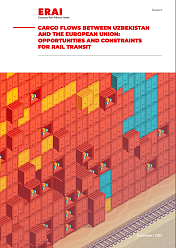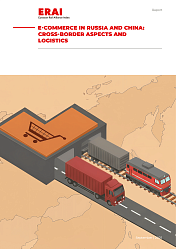He wrote: «... What’s more important is whether the more than a decade of effort we’ve put in together is worth it. This depends on the future of the company in the next three, five, ten, twenty, and even thirty years. Without a future, all our current efforts will fade into insignificance, and they might even be forgotten, despite being a part of real history. With a future, our current efforts become precious and worthwhile, and they will be engraved in history. Therefore, I hope that my young comrades will do something for the future of the company. I envy the youthful years you possess. Although I’m leaving Yuxinou, you continue to stand firm and strive. If I must express regret, it’s simply that we won’t be sharing the same trench day in and day out, but my heart will always be with you and with Yuxinou...»
New Silkroad Discovery: Mr. Dan QI, what is the one thing you find it most difficult to part with and can’t let go of in your heart?
Dan QI: It is undoubtedly the career of the China-Europe freight train service and the emotional connection with the entire Yuxinou team. I was seconded to the Logistics Office of Chongqing Municipal Government in 2011, initially responsible for the Chongqing International Air Cargo «Ice-Breaking» project, and later involved in the establishment of Yuxinou and related work. It has been more than a decade since then. Over these years, we have witnessed and been actively involved in the growth and development of Yuxinou and the entire China-Europe freight train industry. Along this journey, we have overcome many unknown challenges together and gained valuable experiences. The entire team has established deep bonds, and in a sense, we are like a family. This career is akin to our «child,» and we have invested a lot of effort into it. Seeing it thrive fills us with genuine happiness and pride. Now, saying goodbye to the «family» and «child» that have been with me for over a decade naturally brings a deep sense of reluctance and attachment in my heart.
New Silkroad Discovery: Looking back on the work of the past decade, what achievements of Yuxinou make you most proud? Could you share a few moments or highlights with us?
Dan QI: Yuxinou, as the first comprehensive logistics service provider representing Chongqing’s «Going Global» strategy, uniquely combining renowned brands, a national 5A-level logistics enterprise, and a five-star multimodal transport operator, has achieved several commendable accomplishments in its development. Personally, what I’m most proud of is its role in driving Chongqing’s outward openness and industrial development, especially its strategic significance during special times.
In 2014, we embarked on the exploration of running public trains for various industries, and subsequently, we developed various innovative transportation projects, including full-container loads, cold chain logistics, cross-border e-commerce, and more. As Yuxinou’s services steadily expanded, Chongqing also obtained approvals for multiple railway ports such as the automobile complete vehicle import port, the international mail handling center, and the bioproducts port. This led to a global «eight consecutive championships» in IT product output, the establishment of trillion-yuan level industrial clusters in the automobile and electronic information sectors, and the development of two national-level bonded zones, significantly raising the city’s level of outward openness. I believe this is a proactive response to the strategic positioning and goals for Chongqing, and Yuxinou has become a key driver in the creation of Chongqing’s inland openness and will continue to contribute to elevating the city’s openness and industrial economic development.
In early 2020, when the COVID-19 pandemic suddenly erupted, maritime and air transport were severely impacted. It was during this time that the strategic role of China-Europe freight trains became even more apparent. I vividly recall that all of us acted promptly. First, we formed an emergency task force and were the first in the country to introduce the «Yuxinou (China-Europe freight train) COVID-19 Medical Supplies Transport Emergency Plan,» providing solutions for medical supply procurement entities and offering free warehouse space, free international railway transportation, and other support services for emergency goods. Our entire team, including on-site personnel ensuring the dispatch of train services and office staff on 24-hour standby, worked tirelessly to ensure uninterrupted and stable train operations. This included Yuxinou and other China-Europe freight train services, which became a «lifeline» for global cooperation in combating the pandemic.
New Silkroad Discovery: Innovation and perseverance are among the most valuable qualities in any entrepreneurial endeavor. Where do you think Yuxinou’s innovation is reflected? What has Yuxinou been persistent in achieving?
Dan QI: Yuxinou’s innovation is reflected in its willingness to explore and break new ground. Over its development of more than a decade, Yuxinou has consistently adhered to the brand essence of «innovation, openness, connectivity, and mission,» continuously exploring new paths, and pioneering numerous innovative experiences, providing new directions for industry development. For instance, in the establishment of new rules for land-based trade, Yuxinou broke the international railway postal ban and was the first to achieve two-way international railway postal connectivity. Subsequently, this international railway postal model was replicated and extended to other cities like Yiwu, Zhengzhou, Chengdu, and played a crucial role during the pandemic.
Yuxinou explored multimodal transport under a single document and issued the first «Railway Bill of Lading International Letter of Credit.» It actively promoted the use of bill of lading property rights and financial attributes, implementing the first blockchain electronic bill of lading financing business for China-Europe freight trains.
Yuxinou took the lead in improving China-Europe freight train transport efficiency by initiating projects like «Railway-Government Communication,» joint actions for transportation safety in countries along the route, and achieving two-way connectivity of «railway express» mode for imports and exports, effectively ensuring the safe and convenient transport of China-Europe freight trains and enhancing inland logistics organizational capacity.
In accelerating the innovation of logistics supply chain service models, Yuxinou was the first to conduct the industry’s first cross-border RMB payment transaction, reinforcing settlement security in foreign trade, and innovating with «blockchain + cross-border finance.» It strengthened cooperation between banks and enterprises, effectively addressing the financing challenges for small and medium-sized enterprises. These efforts represent Yuxinou’s innovative contributions to the betterment of the industry. I believe that in the future, Yuxinou will continue to adhere to its original mission and persist in its exploration, playing an even more active role in leading the industry’s innovative development.
New Silkroad Discovery: You mentioned that there are structural changes occurring at the national level in terms of route planning, overseas channel layout, and capacity deployment for China-Europe freight trains. How should we interpret these changes, and how can industry participants adapt to, engage in, and drive these changes?
Dan QI: At the national level, structural changes are underway concerning route planning, overseas channel layout, and capacity deployment for China-Europe freight trains. China-Central Asia, China-Vietnam, and China-Laos (Thailand), among other rail services, have been incorporated into the overall development plan for China-Europe freight trains over the next 3 to 5 years. This extension of the China-Europe freight train service network aims to enhance connectivity between ASEAN, China, and Central Asia. Additionally, active participation in international cooperation for Trans-Caspian routes is taking place to further improve the southern routes of the China-Europe freight train.
As an industry practitioner, I believe it’s important to proactively change one’s perspective and make strategic adjustments in line with the overall development plan. Strengthening the development of the southern route for China-Europe freight trains is crucial. Continuously improving the train’s resilience to risks and further expanding routes and resource allocation in regions such as Central Asia and Southeast Asia is essential. By running freight train services, these regions’ economies can be more closely linked, promoting deeper exchanges in terms of trade, culture, and other aspects.
New Silkroad Discovery: The growth of the China-Europe freight train has transitioned from «infancy to adolescence,» but in order to become a century-long endeavor, what further considerations are needed?
Dan QI: For the China-Europe freight train service to become a century-long endeavor, it is first and foremost essential to always remember its mission and responsibilities and consistently fulfill its positive role in supporting the «Belt and Road» initiative. Building on this foundation, efforts can be directed towards cost reduction, increased efficiency, and alignment with the volume and market environment, striving to achieve the vision of making the China-Europe freight train truly market-oriented. This also requires the collaborative efforts of all relevant departments, businesses, and all parties along the entire China-Europe freight train supply chain to jointly maintain the stability of the China-Europe freight train market. Emphasis on market-oriented operation is crucial to promote the industry’s healthy, sustainable development and to continually unlock the potential and vitality of the China-Europe freight train.





